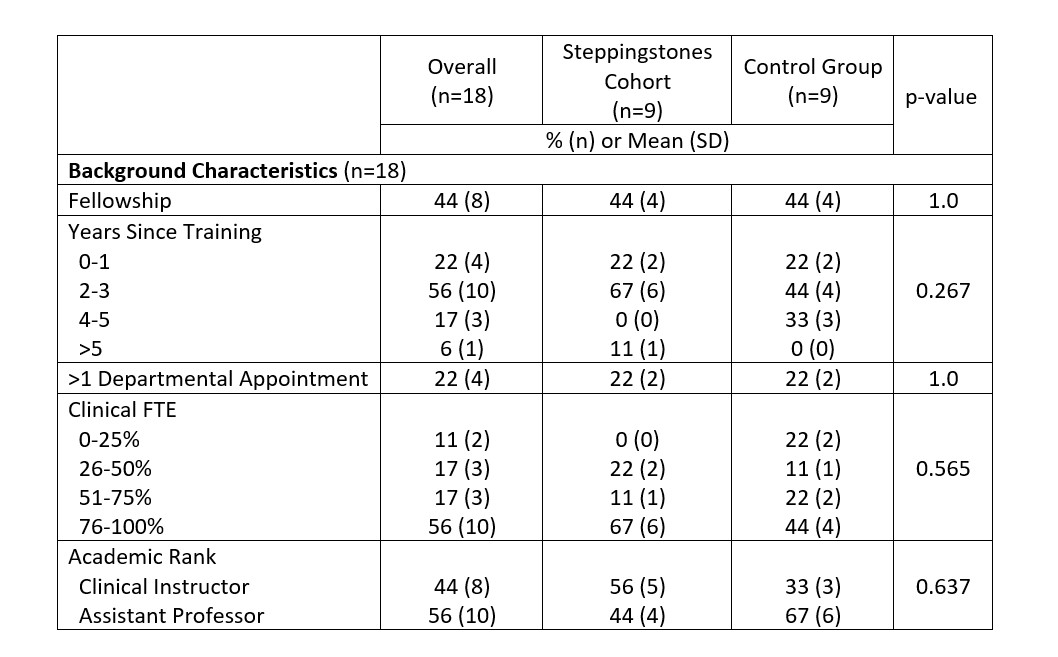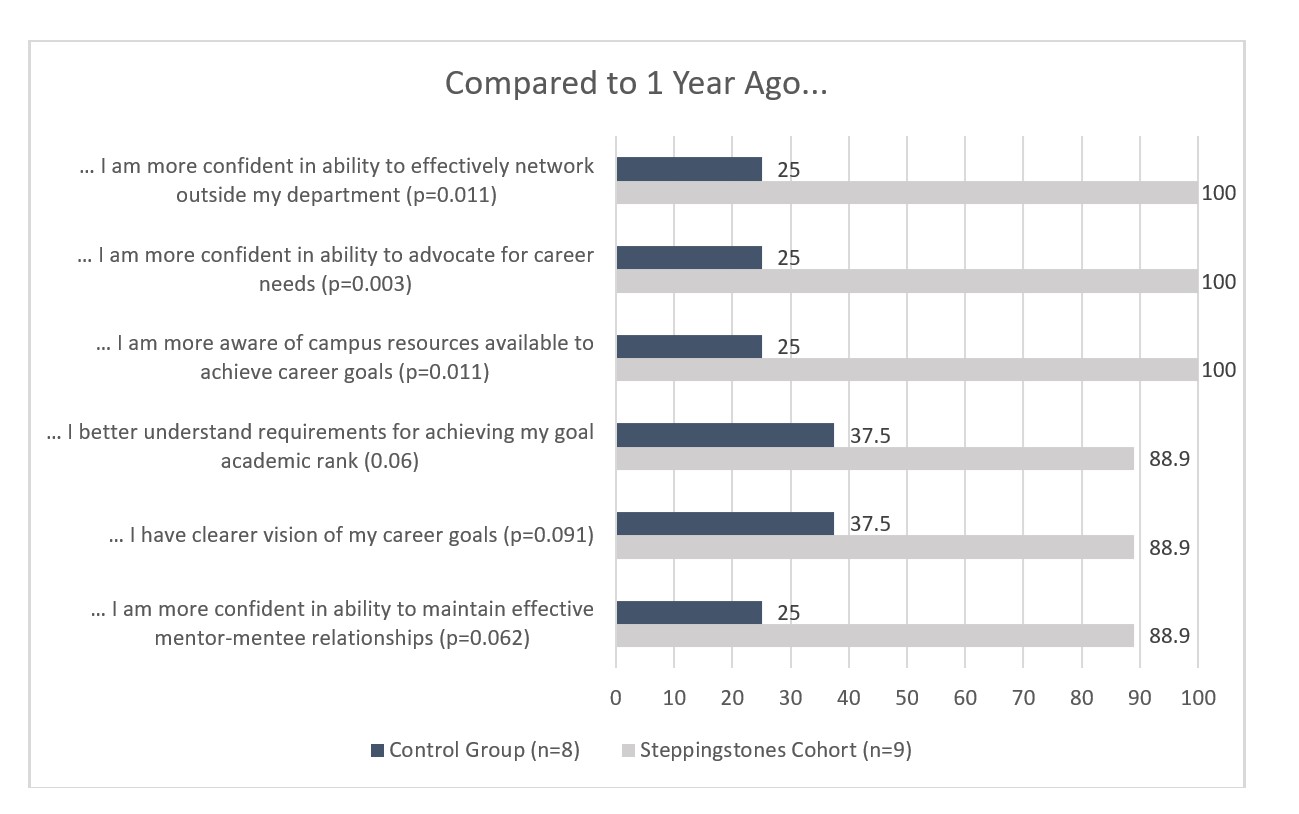Medical Education: Faculty Development
Medical Education 5: Faculty Development 1
524 - Steps Forward: Influence of a Career Development Curriculum on Early Career Pediatric Hospitalists
Publication Number: 524.227
- LA
Lauren R. Anderson, MD, FAAP (she/her/hers)
Assistant Professor
University of Colorado School of Medicine
Aurora, Colorado, United States
Presenting Author(s)
Background: A local needs assessment demonstrated that early career pediatric hospitalists (ECPH) are unsure of their academic trajectory and seek career development support and clearer career visions. In response, we developed Steppingstones, a yearlong, cohort-based curriculum consisting of six interactive seminars and creation of professional portfolios. Seminar topics were selected based on the greatest needs of our ECPH and included values clarification, academic promotions, career planning, career engagement, mentorship, and networking. The curriculum was launched in August 2021 and has since graduated its first cohort.
Objective:
To describe our experience implementing a novel career development curriculum for ECPH and assess the perceived efficacy of Steppingstones participation on career development competencies.
Design/Methods:
Nine subjects, having self-selected for the curriculum, and 9 controls participated in the case-control study. For the curriculum cohort, we recorded seminar attendance and completion of professional portfolio components. To assess perceived change in career development competencies, post-intervention surveys were administered via REDCap to all 18 study participants after the conclusion of the curriculum in September 2022. The survey included demographic questions and 5-point response scales rating present state of career development competencies compared to one year ago. Fisher’s Exact tests were used to compare demographic characteristics and answers on all survey questions between the groups.
Results: For the cohort, mean attendance rate for all six seminars was 0.93 (STD 0.08) and mean portfolio completion rate was 0.78 (STD 0.21). Seventeen participants (9 subjects, 8 controls) completed the survey (94.4% response rate). Subject and control groups had similar distribution of demographics, including years since training, fellowship, and academic rank (Table 1). For all career development competencies, the Steppingstones cohort reported greater positive gains, with three areas being statistically significant: awareness of campus resources, confidence in advocating for career needs, and confidence in effectively networking outside of their department (Fig. 1).
Conclusion(s): Steppingstones participants were highly engaged in the curriculum and reported large gains in career development competencies compared to controls. We attribute these gains to increased knowledge of career development practices as well as dedicated time to build these competencies. Our results are limited by small size and recall bias. We plan to re-analyze this data following graduation of the second cohort.

